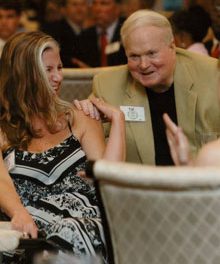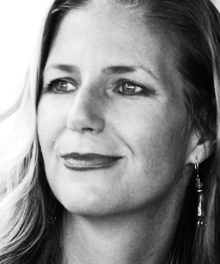 By Margaret Evans, Editor
By Margaret Evans, Editor
Did you get up early last Saturday for the Royal Wedding? I did, and it was absolutely worth it.
The perfect dress . . . the perfectly silly hats . . . the spectacular music . . . the sweet looks between Meghan and Harry . . . the funny looks on wedding guests’ faces during Bishop Michael Curry’s sermon . . .
And, of course, Bishop Michael Curry’s sermon.
“Love is the way,” he exhorted with joyful abandon, going full Preacher Man on that crowd of stiff-upper-lippers. “Love is the way!” Some of the guests shifted awkwardly in their pews, their faces frozen in inexpressive masks. Others looked embarrassed or slightly amused, while still others were wide-eyed with wonder. Or was it shock?
As for me, there were chills up my spine and tears in my eyes and I could barely breathe through the entire thing. They say the sermon ran long, but for me, it was over too soon. I felt like Oliver Twist. “Please sir, I want some more.”
My daughter had gone back to bed mid-sermon – she was up early for the dress and the veil; nobody’d warned her there’d be preaching – and my husband was still asleep. Obviously, I had to communicate with somebody – because that’s what I do! – so I jumped on Facebook and posted: “Bishop Michael Curry may be sparking a worldwide Christian revival right now!”
No sooner had I dashed off that comment then another one appeared on my newsfeed. It was posted by a friend of mine, a man who’s a few years older than I, a fellow Sewanee alum, and an Episcopalian (like the right Reverend Curry). He’d written, “Bishop Curry is embarrassing himself . . . and us.”
Wait, what?!?! I was stunned. Could we be watching the same sermon? If so, how could he possibly feel this way? I was angry. Hurt, even. My friend – somebody I like and respect – was being scathing and dismissive of an experience I found deeply moving and inspiring. This felt personal.
And it was. But more specifically, it was “personality.”
I’ve been having fun with my friends and family, lately, exploring our “personality types” via a free test at www.16personalities.com. It’s based on the well-known Myers-Briggs personality test, and it only takes about 10 minutes. I found my own results pretty accurate – I’m an ENFP-T, aka “Campaigner” – but your mileage may vary.
I say “pretty accurate” because I don’t feel entirely aligned with the Campaigner personality. That’s probably because social science is not entirely exact. For instance, according to the test I am 54% “extrovert”; that’s what the “E” in my profile stands for. But this means I’m also 46% “introvert.” 54/46 is fairly close to 50/50. Or even 46/54. A few points in the other direction, and I’d be an INFP, the “Mediator” – a similar type but distinctly different because of the E/I ratio.
Typing somebody as an “extrovert” when she’s almost an “introvert” seems problematic – especially since I suspect I’m a natural-born introvert whose so-called “extroversion” is almost entirely a product of growing up in the South.
Southern girls of my generation were raised to be extroverts – encouraged to be chatty and charming and socially aware. And I don’t mean “socially aware” in the way we typically use that term today – with all its political connotations. I mean that we were taught to be overtly solicitous of others, to pay attention to conversational cues and body language, to always put others at ease. All others. (In that way, we southern girls were “woke” before “woke” was a thing.) If all of the above didn’t come naturally, you sucked it up and learned it. Kind of a “fake it ‘til you make it” strategy.
I’ll never forget coming home one afternoon during my freshman year in high school. My mom called me into the kitchen, solemnly saying we needed to “have a talk.” Apparently, one of the other mothers had phoned her that day to warn her: “Margaret hasn’t been speaking to the older girls in the hallway at school. She is in serious danger of not getting in Sub Deb.”
You laugh, but this was serious business in 1980. Sub Deb was the sorority at my high school in Decatur, Alabama – the one every girl longed to join – and I was a legacy. My mom had been a Sub Debber back in the day. Had I been rejected by the club, it would have been double the ignominy. Twice the shame.
You can imagine my mortification. It was true; I hadn’t been “speaking to the older girls” in the hallway. I was terrified of the older girls! I was shy and bookish and oaf-like, and the older girls – especially the older Sub Deb girls – well, they were confident and dazzling and scary as hell. I could barely look them in the eye, much less muster up a “hey, y’all.” The horror!
I don’t remember how – or even if – I rose to the challenge, but somehow I got into Sub Deb. (Who knows? Maybe my mother played the legacy card.) I also got my braces off, lost some weight, and discovered Sun-In. Eventually, I learned to play the part of the proper Southern socialite. It never came easy, and it still doesn’t, but I’ve been doing it for so long now, I guess it’s officially part of my personality.
That’s the thing about a personality trait. Maybe you’re born with it; maybe it’s Maybelline – i.e. something you “put on.” At some point, maybe you don’t even recognize the difference anymore. At which point, maybe there is no difference.
But whether they come by nature or by nurture, there’s no denying the significant differences that separate our various personality types. This is why my friend and I responded to Bishop Curry’s wedding sermon like creatures from two different planets. (He’s an ENTJ-A, “Commander” to my “Campaigner.” Thinker to my Feeler. Analyst to my Diplomat.) It’s why there were looks of embarrassment, amusement, boredom, and sheer wonder on the faces filling the pews of St. George’s Chapel that day. And I suspect our various personality types – which we adults seem incapable of changing dramatically – account for most of the arguments we have in our homes and offices, not to mention the battles we see raging on social media, day in and day out. Heck, maybe our different personality types account for almost everything that happens in the world.
Then again, maybe not. Maybe I’m just thinking like a “Campaigner.” According to 16 Personalities, my type tends to see life as “a big, complex puzzle where everything is connected . . . through a prism of emotion, compassion and mysticism . . . always looking for a deeper meaning.”
So, maybe what I’m getting at isn’t particularly “deep,” but it still seems important, doesn’t it? Each personality type has its weaknesses, but each has something to offer, too – something wonderful that the world desperately needs. Maybe, as we go through our days and nights and whole lives – rubbing against each other, irritating each other, misunderstanding each other, frustrating each other – maybe we could try harder to remember this truth, and to honor it. Maybe, if we always kept “personality” in mind, we could learn not to take things so . . . personally.





